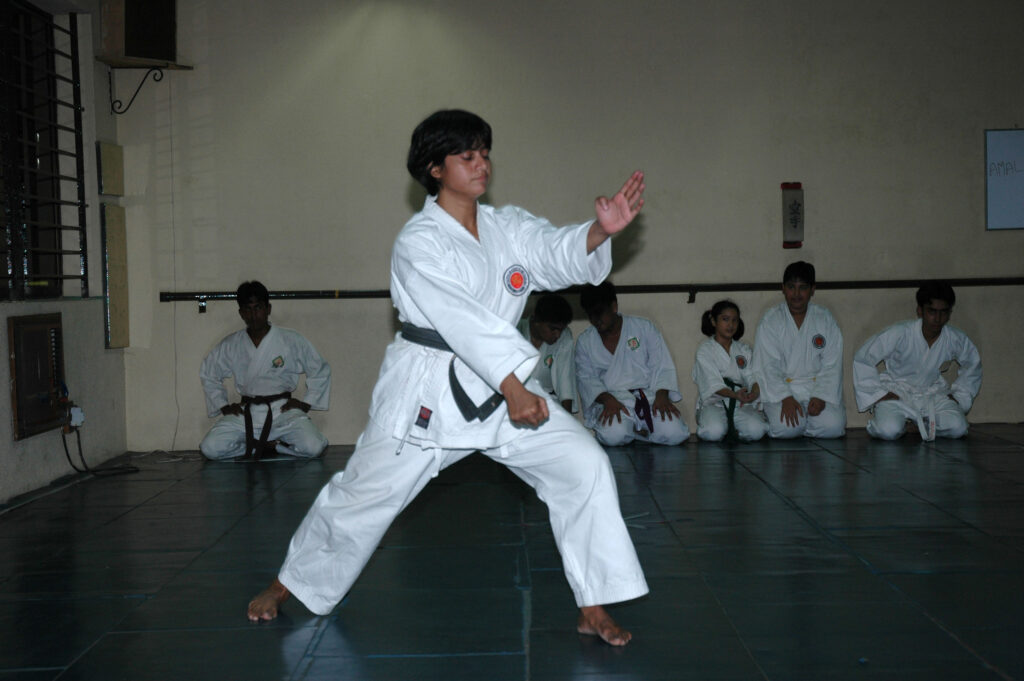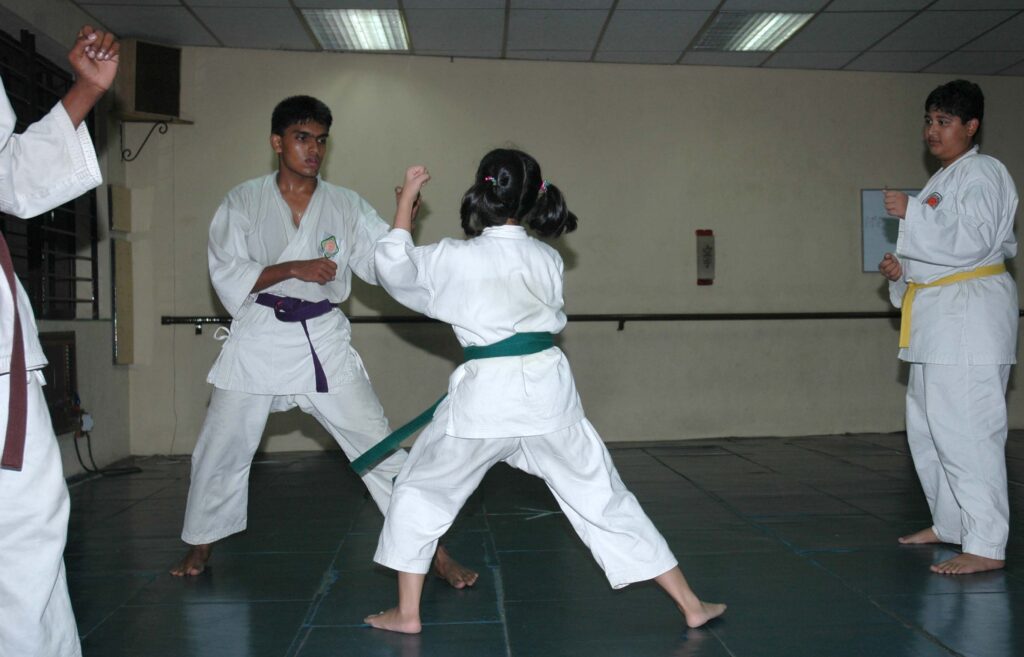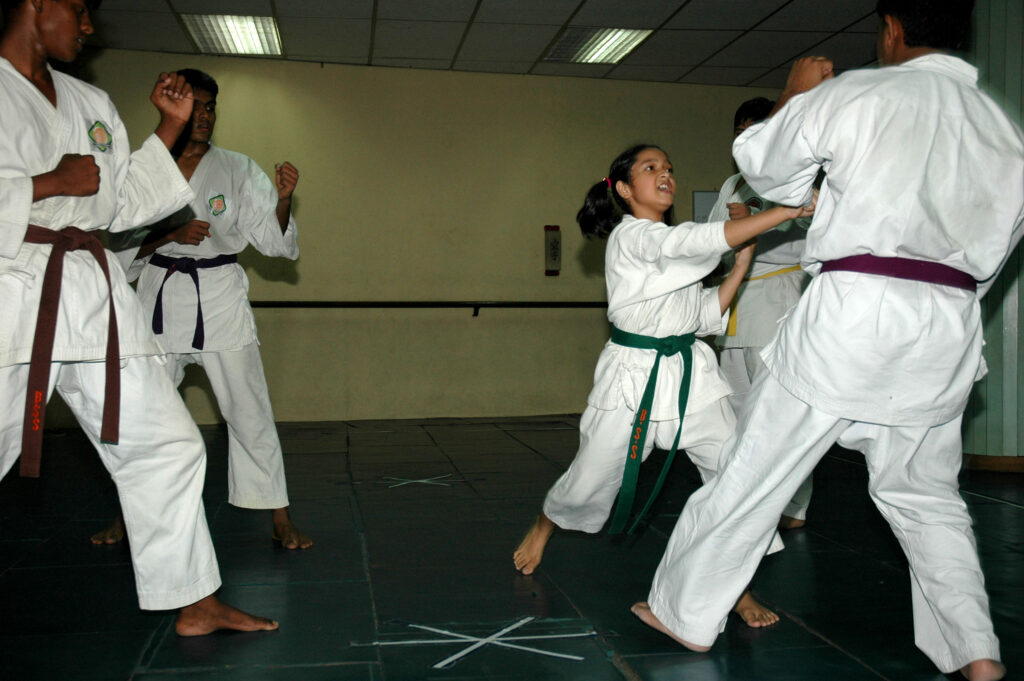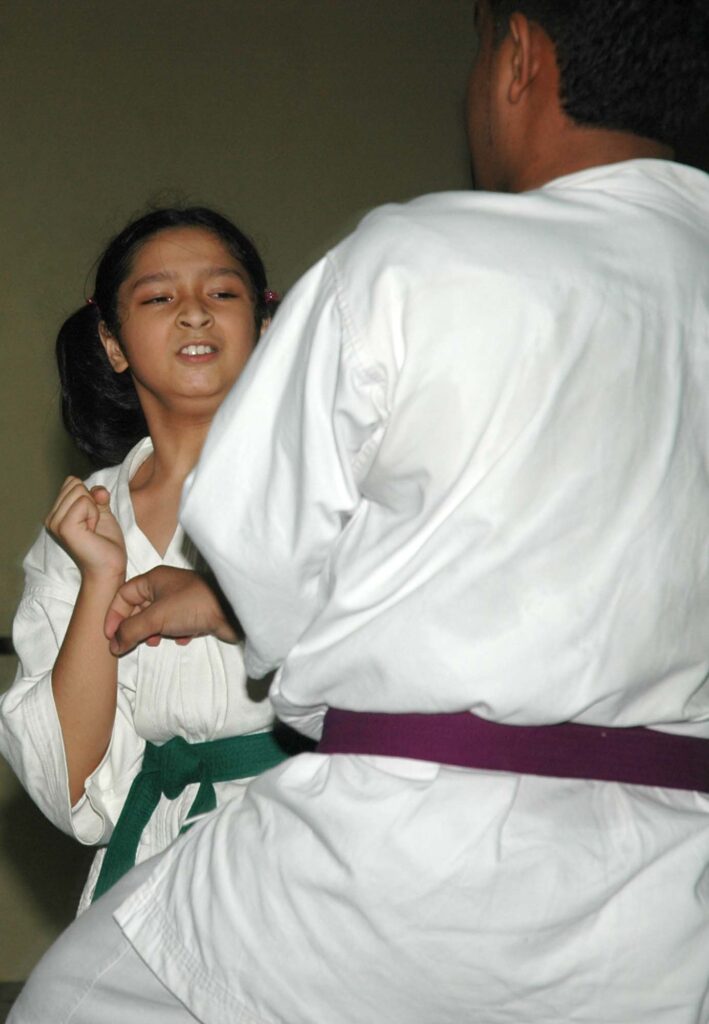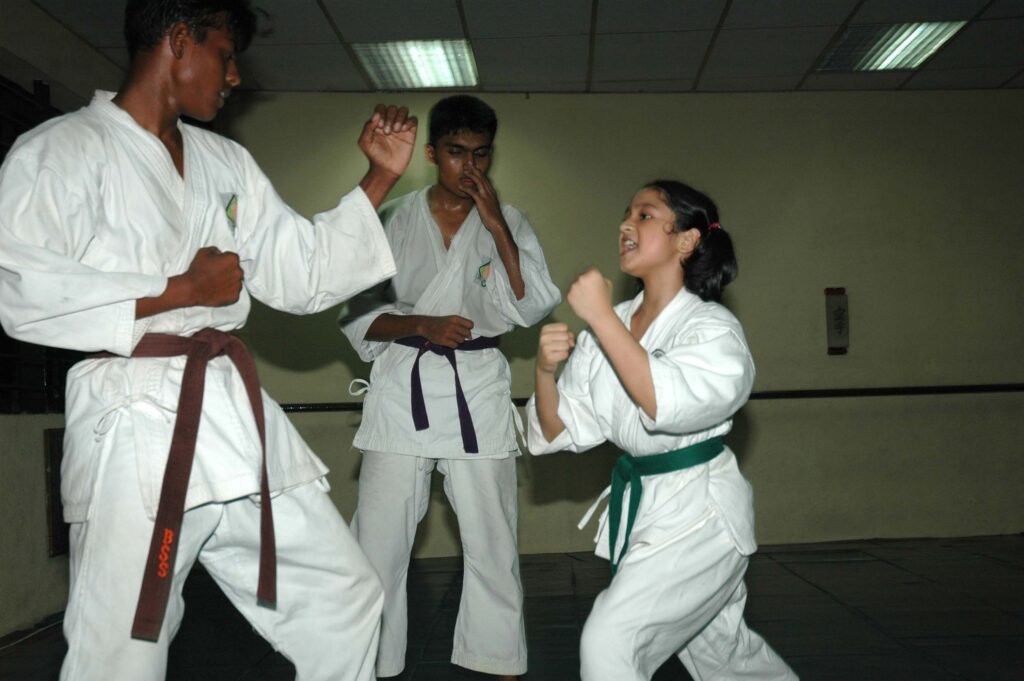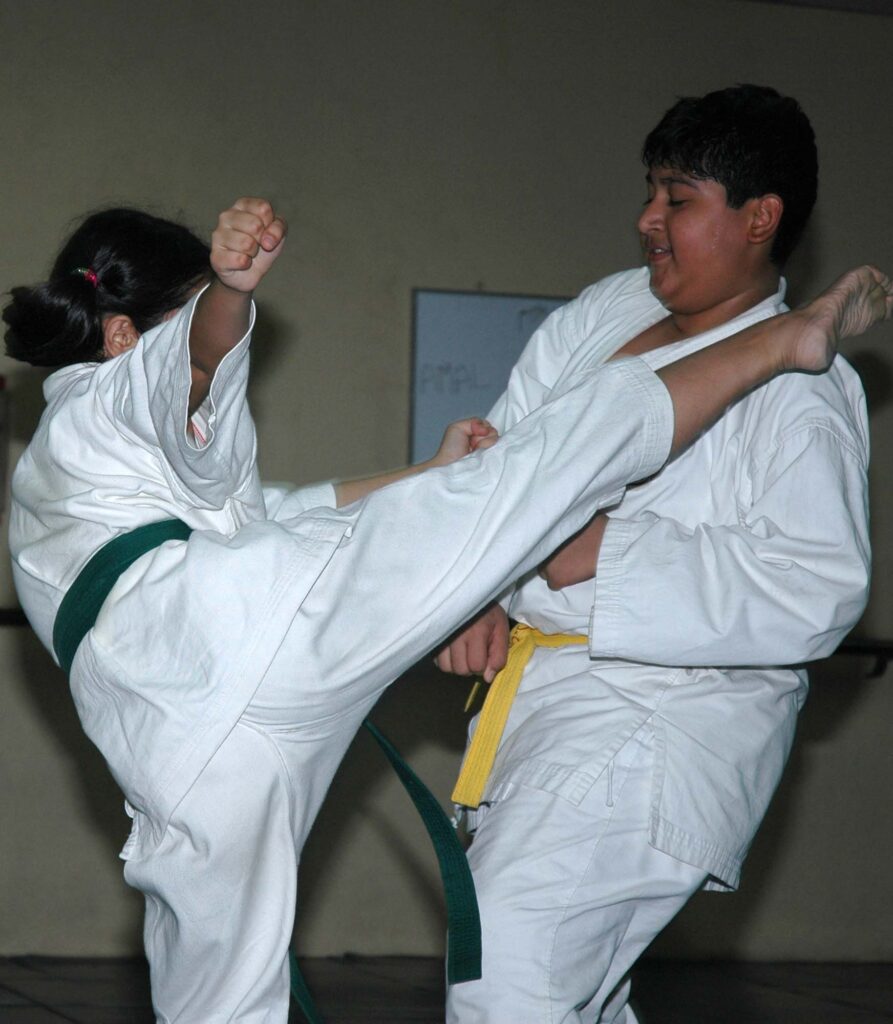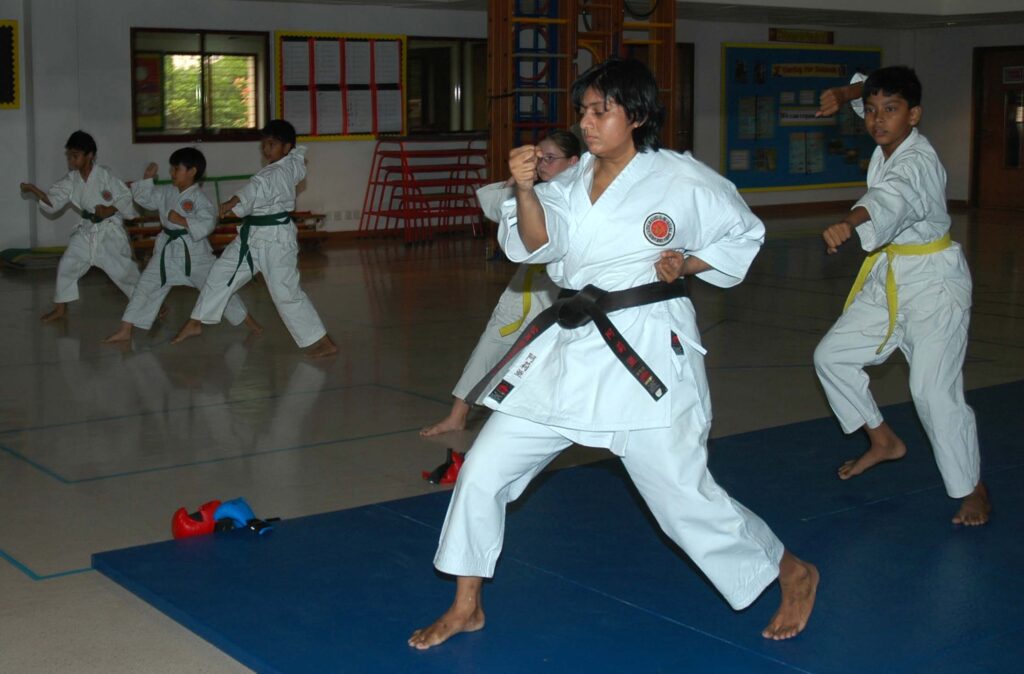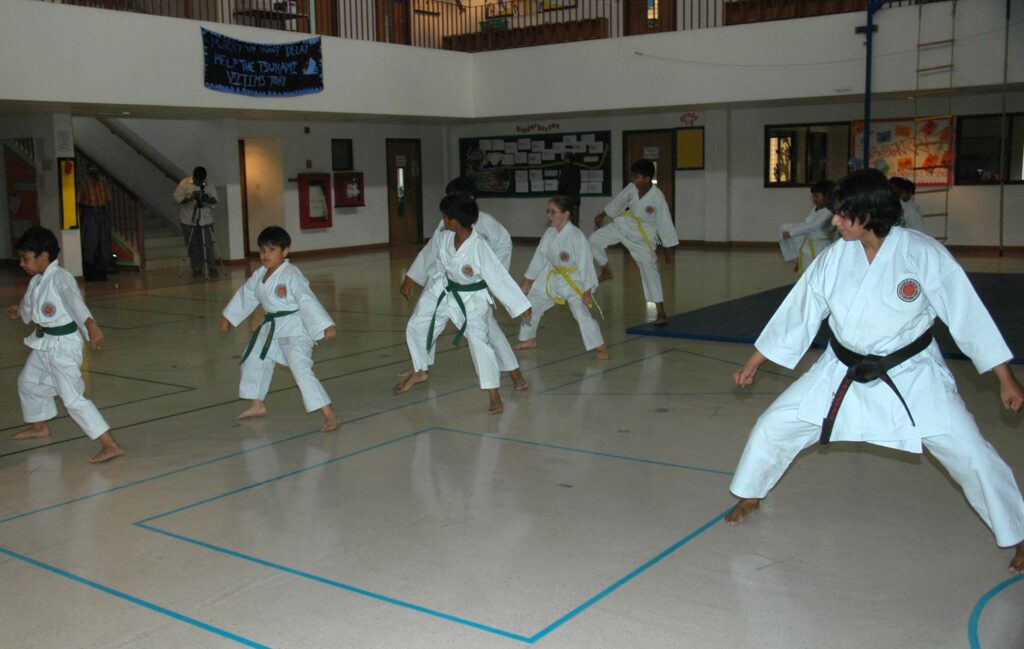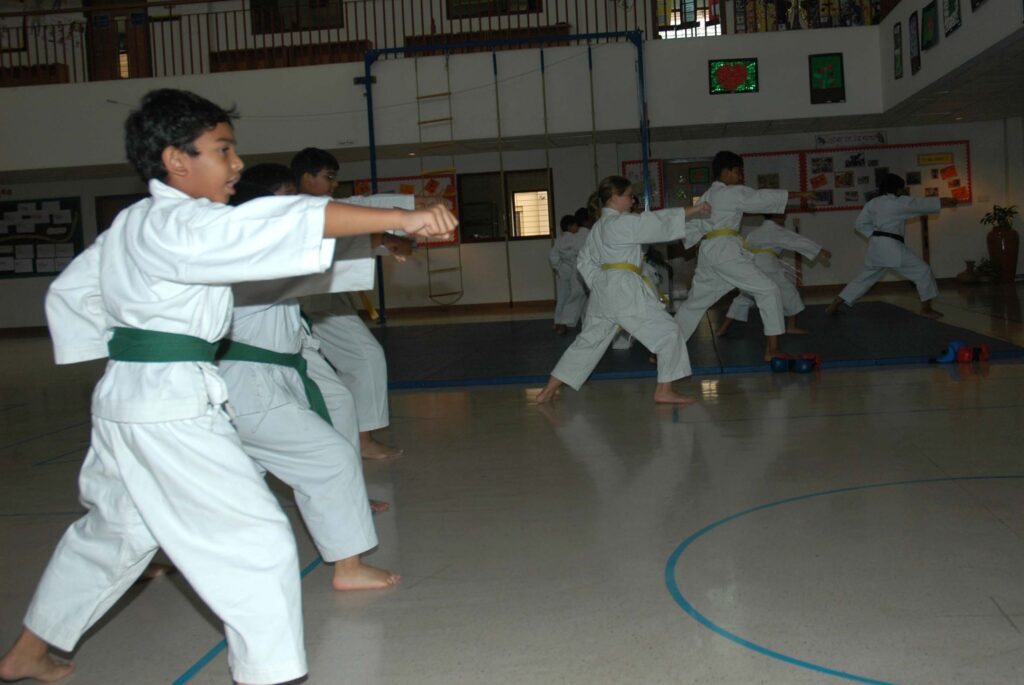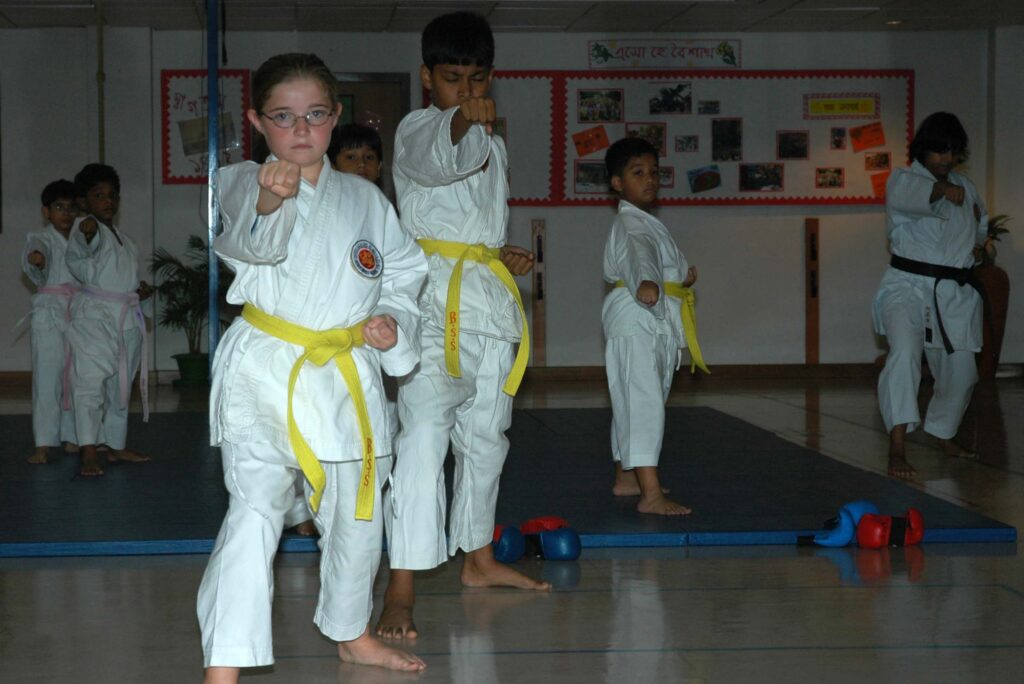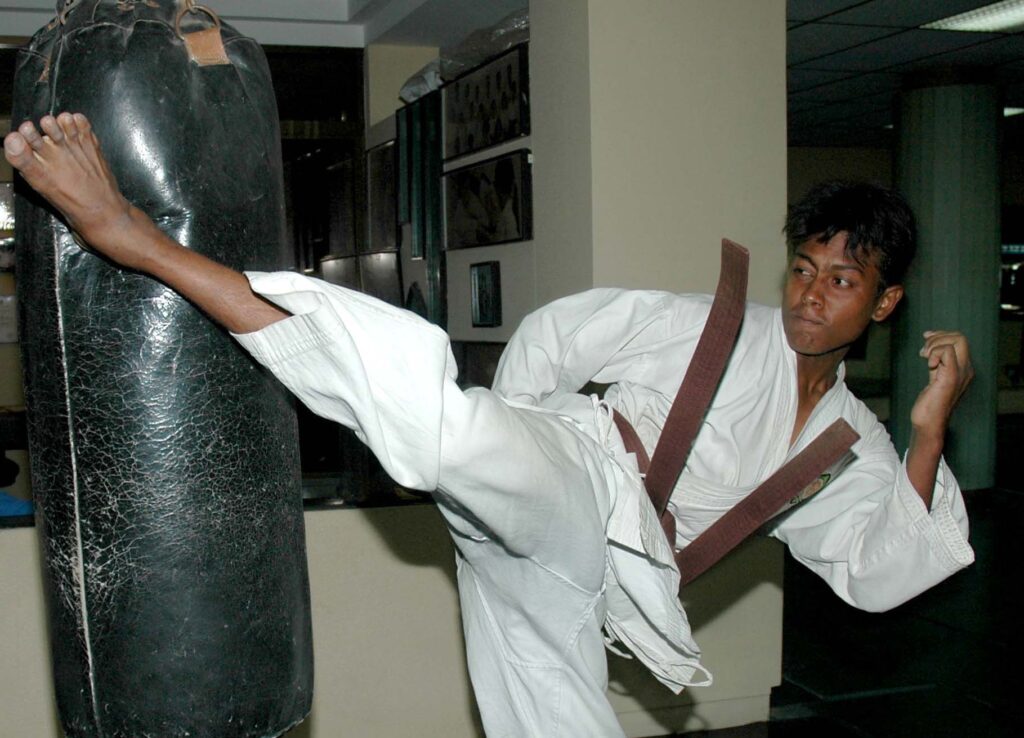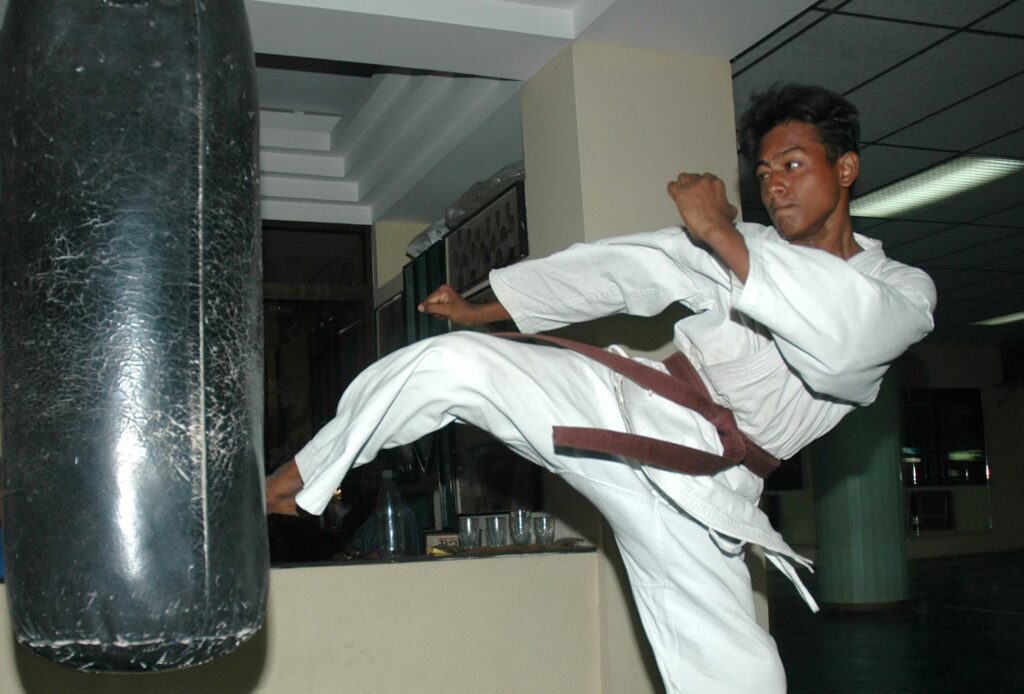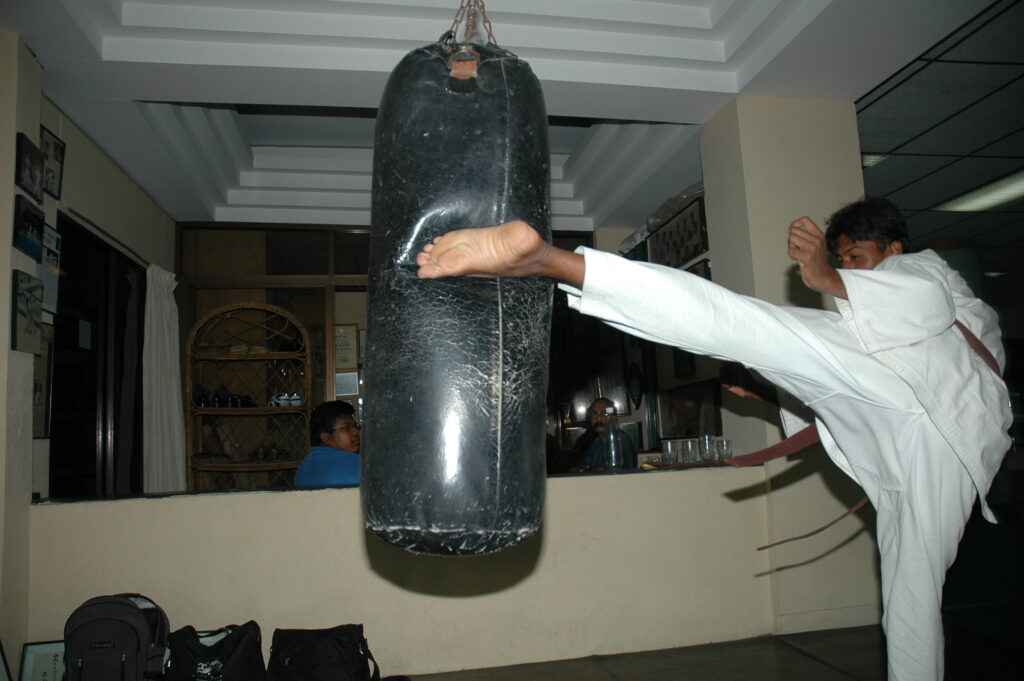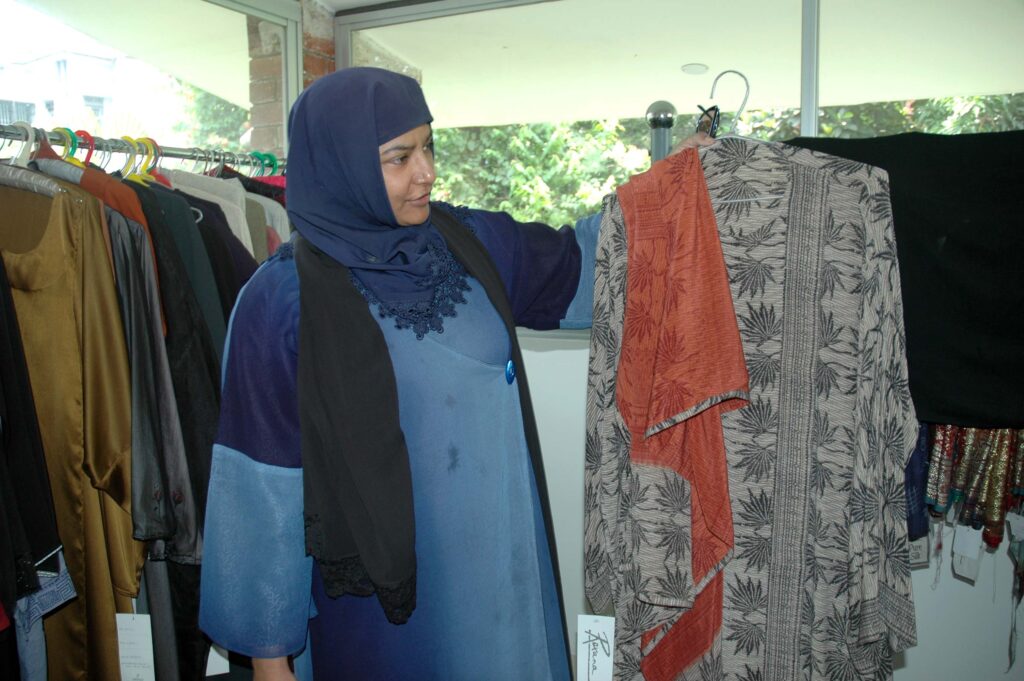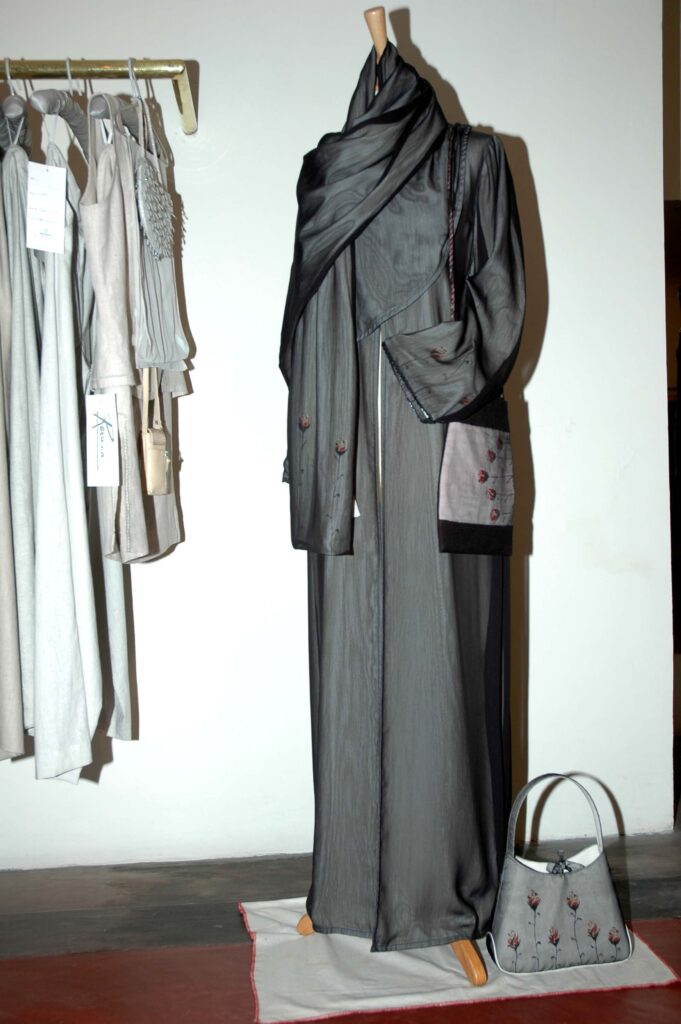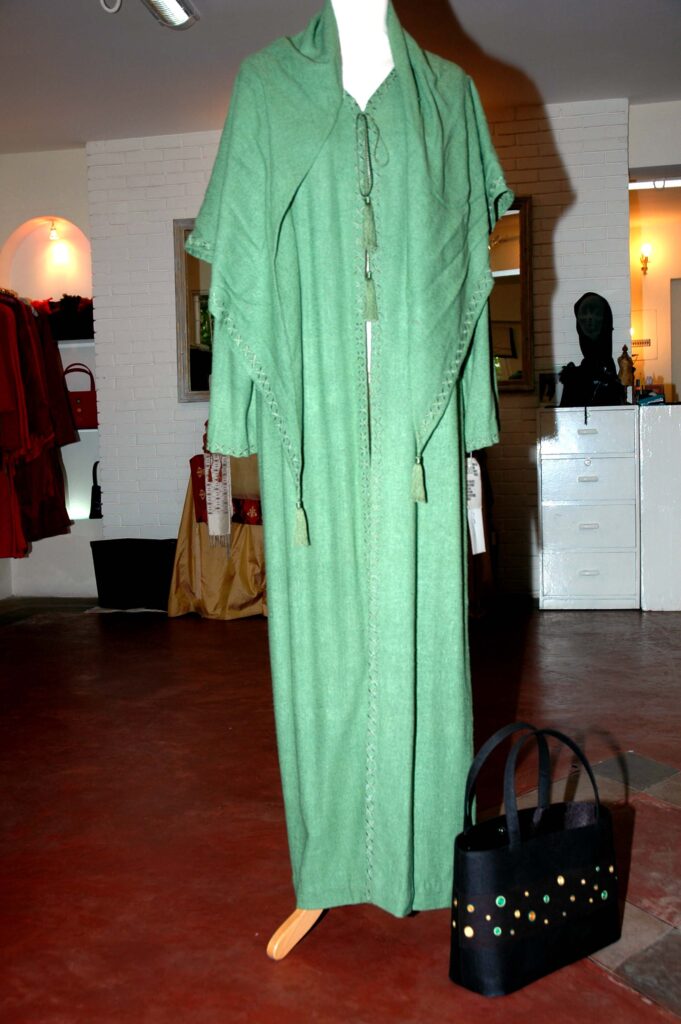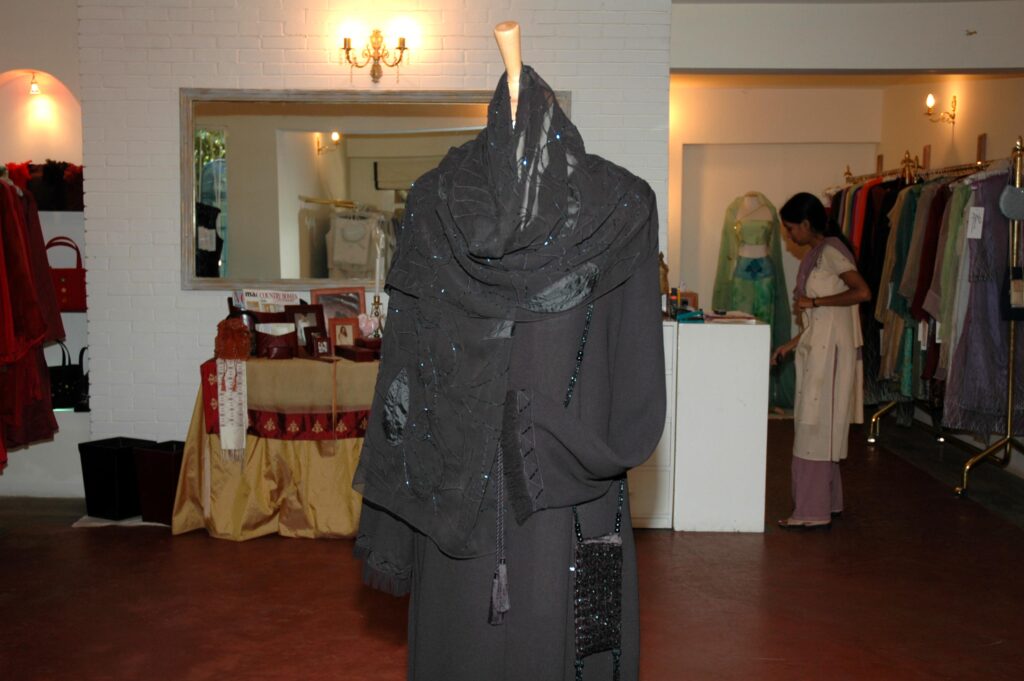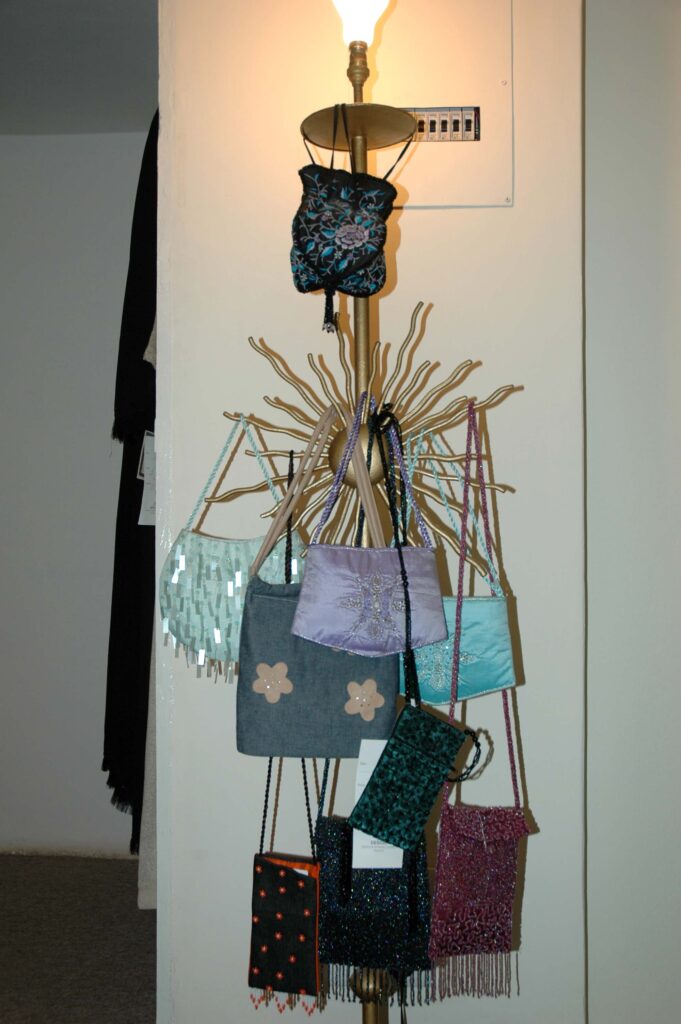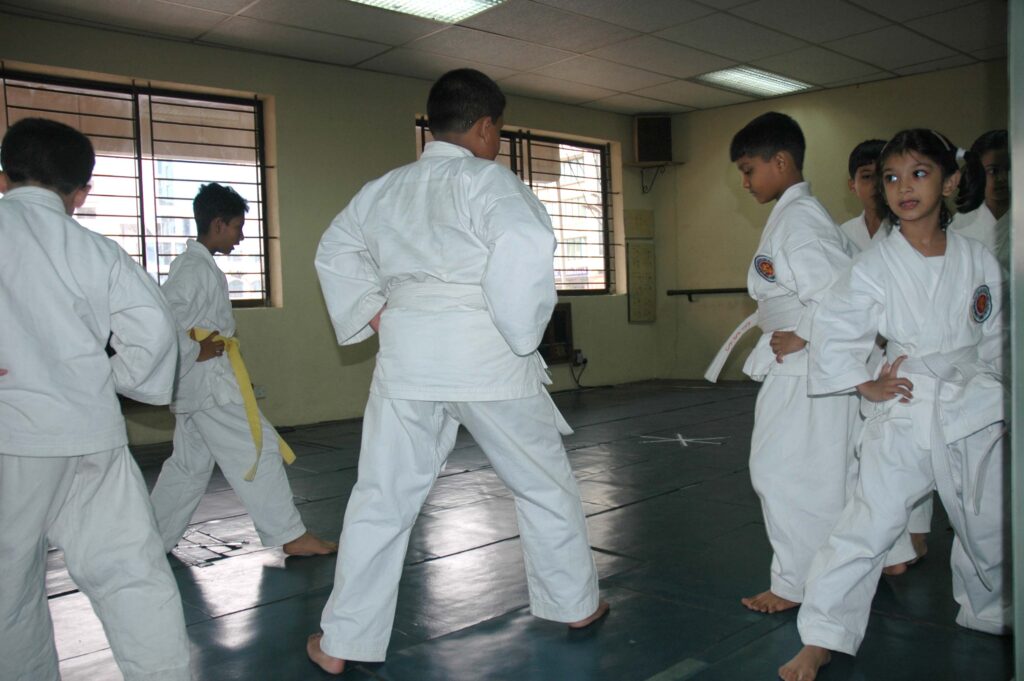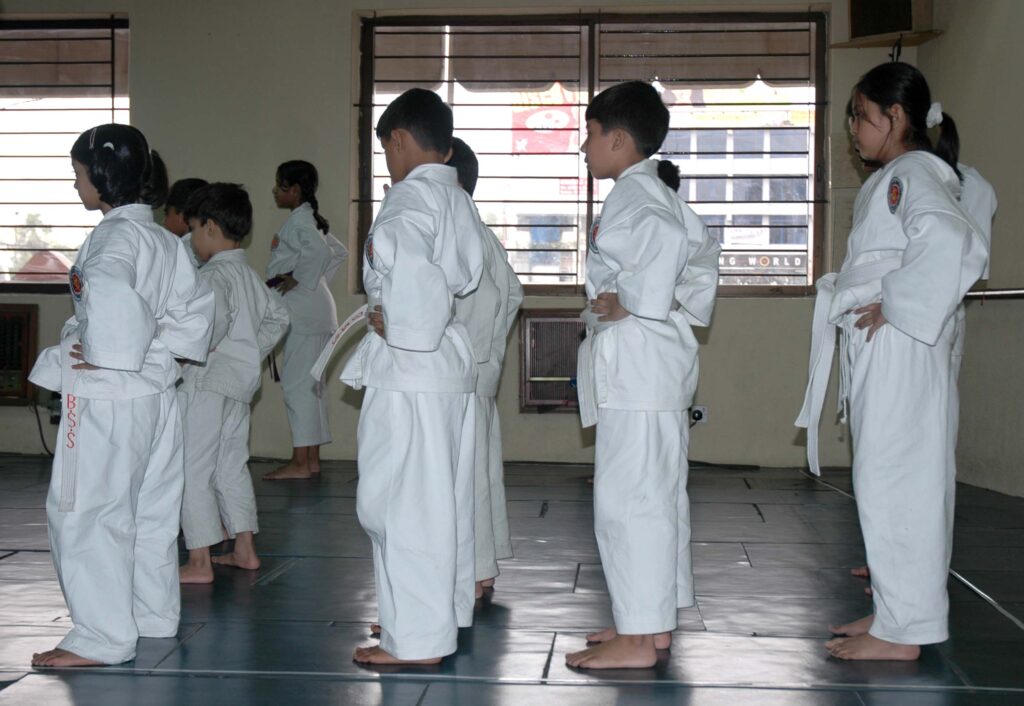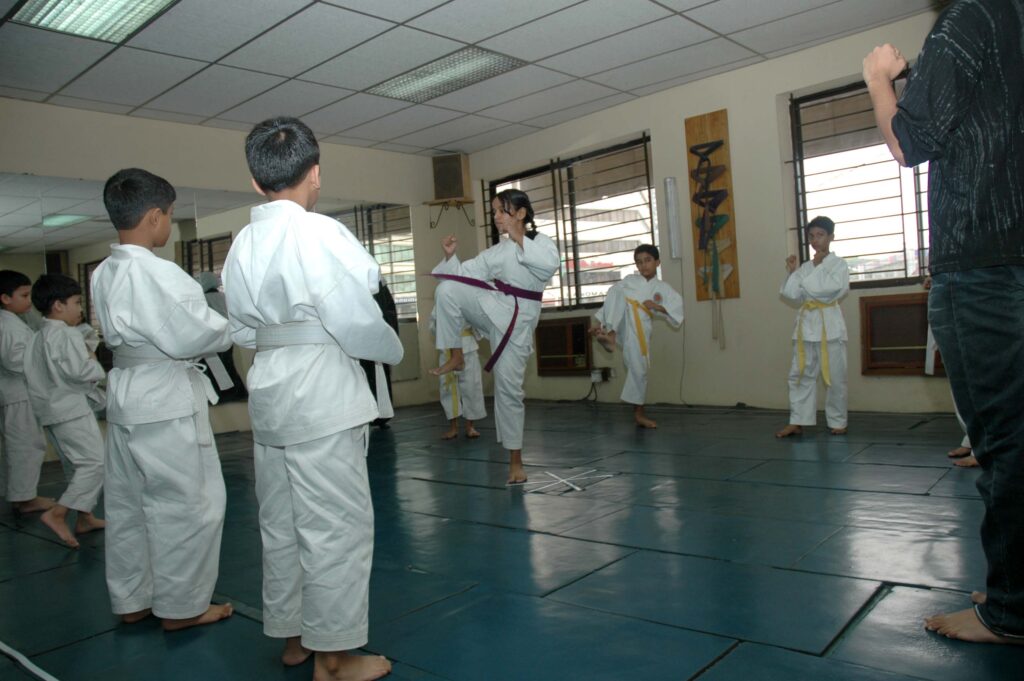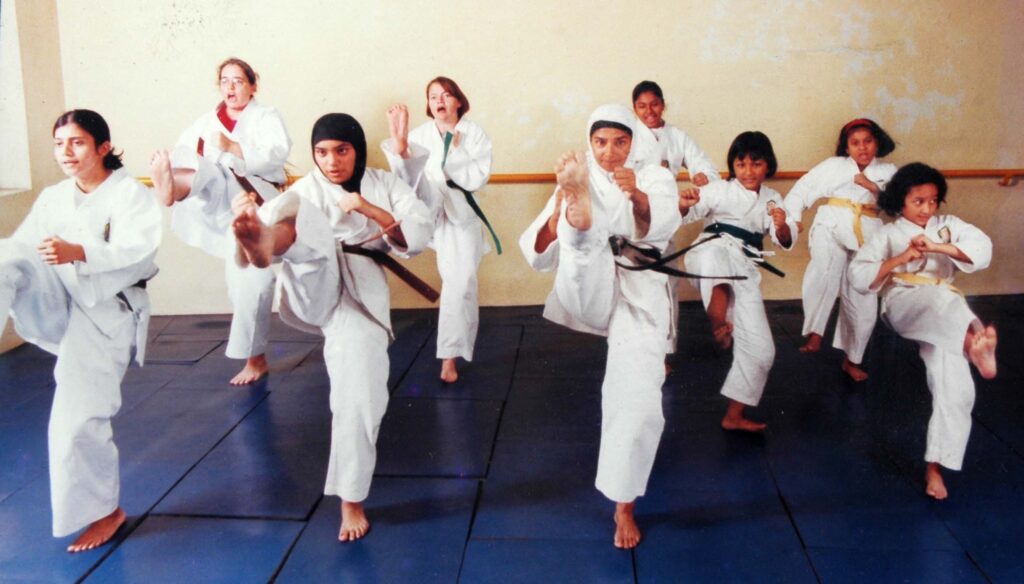A Bangladeshi Karate Pioneer
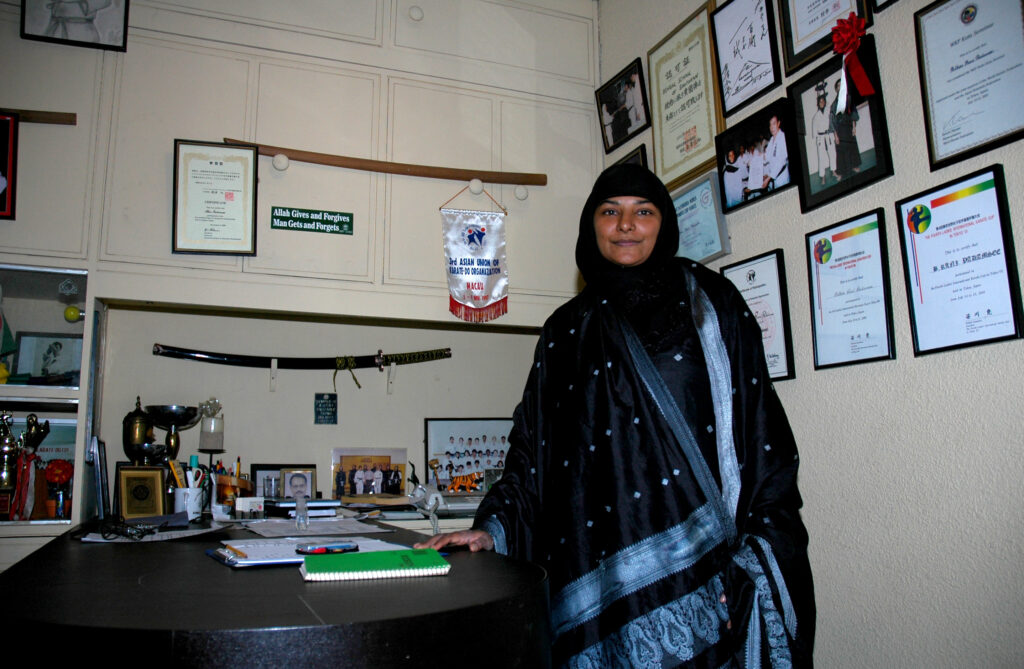
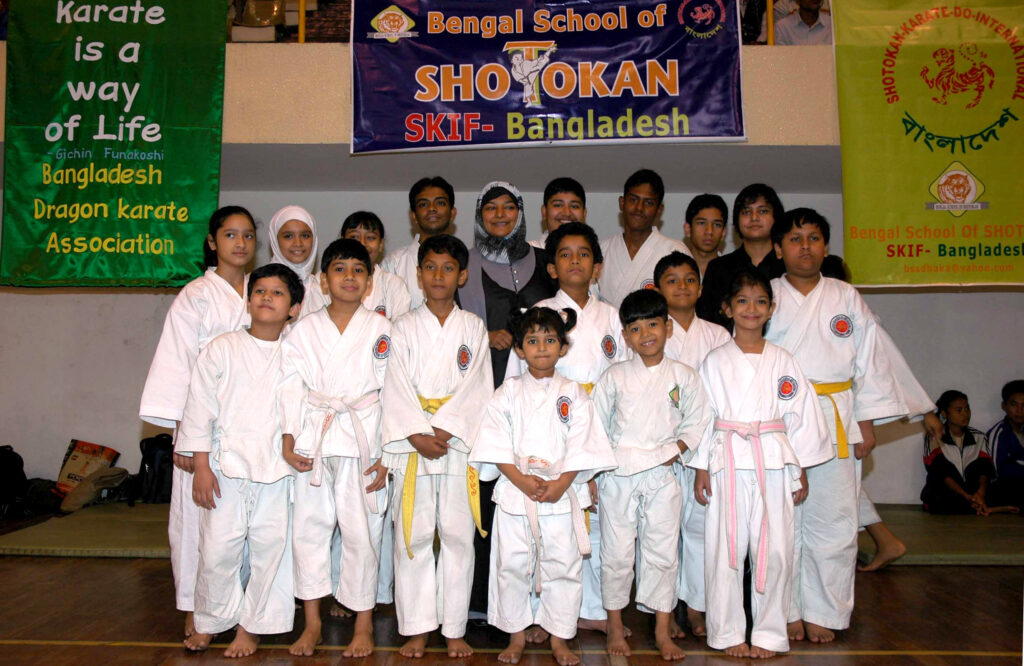
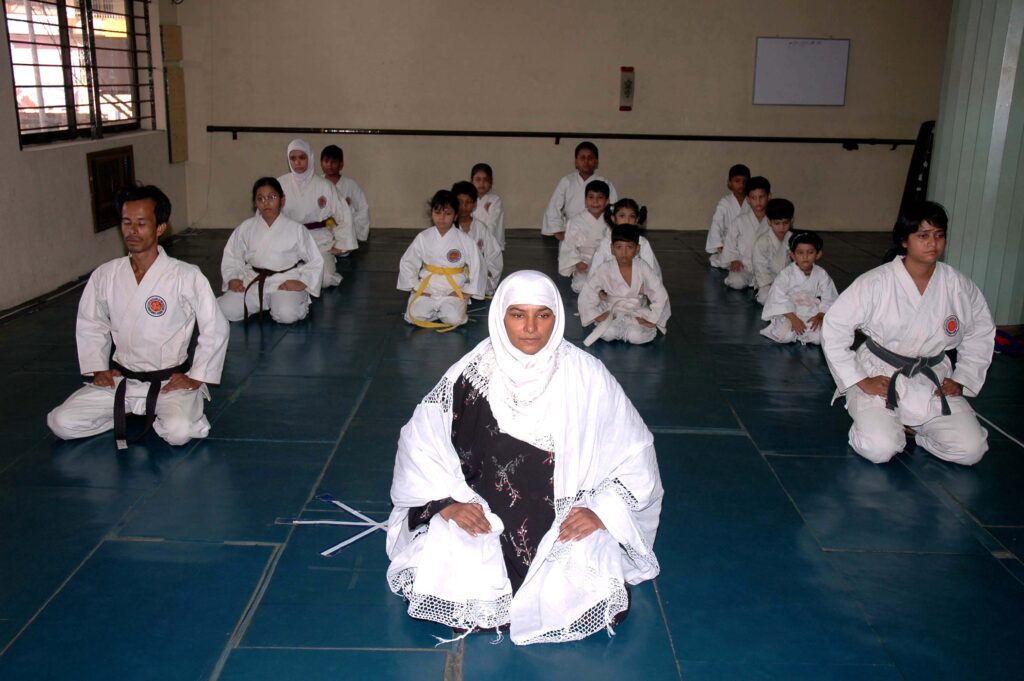
Introduction
Dhaka city has many martial arts schools and clubs where a range of styles are taught. Regular tournaments are held in various venues and students’ enthusiasm and opportunity for competition continue to fuel interest in the art.
It may be surprising to learn that within the Dhaka martial arts scene many participants are girls. This was not always the case, however. The major credit in this regard goes to Shihan Rani Padamse, the first woman black belt in Bangladesh. She is the only 6th-degree black belt in Bangladesh – Rukh Dan (being the highest ranking in the field in Bangladesh). She founded and runs the famous Bengal School of Shotokan – SKIF Bangladesh – situated in Gulshan.
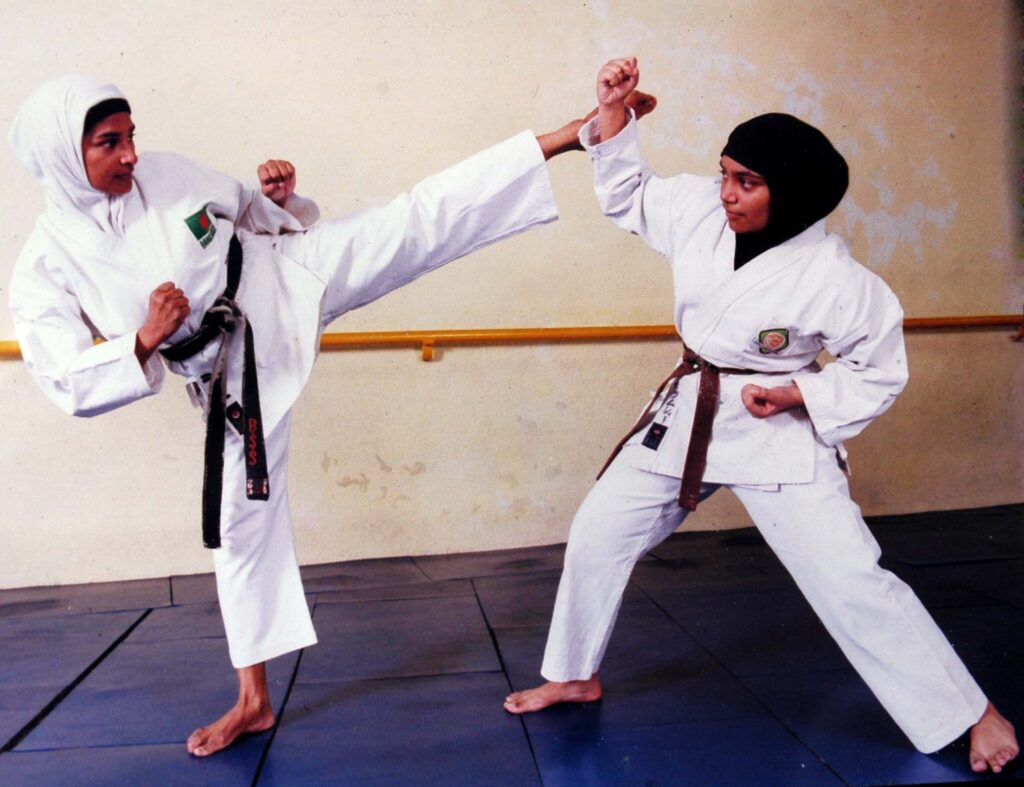
She has a uniquely strong character and with sheer determination overcame many barriers that she faced to be where she is today. She is not only a Shihan (Grandmaster) of Shotokan but has recently extended her interest to fashion designing, producing elegant dresses based on Islamic dress code for women. Rani prefers life in Dhaka than in any other place. She has travelled around the world and feels that there is no place better than home.
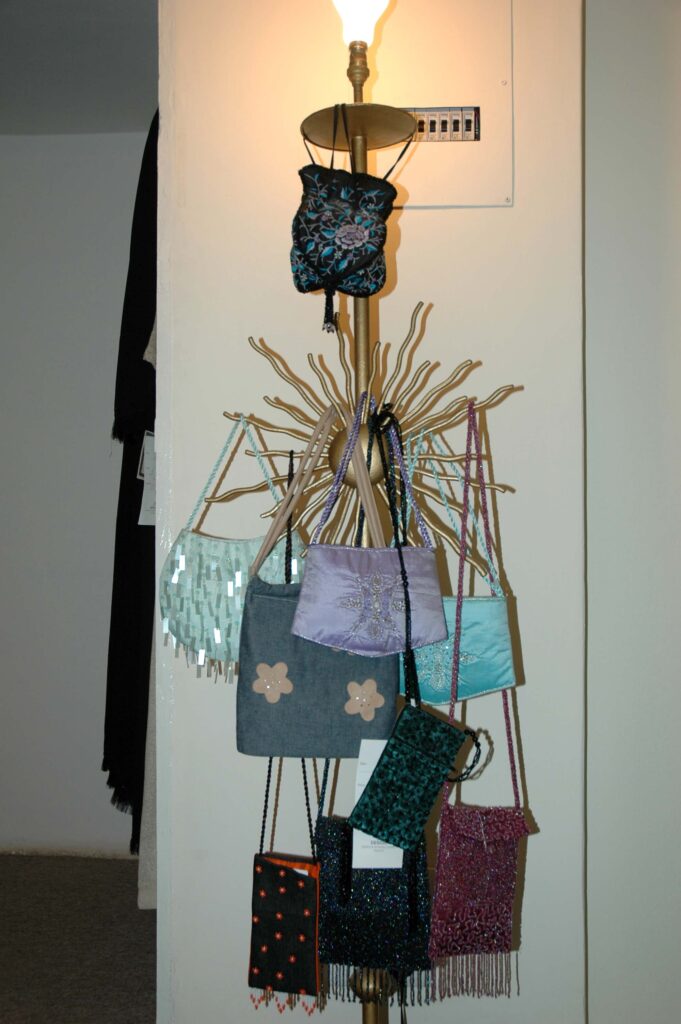
Background
Although Rani’s family is originally from Khulna, southeastern Bangladesh, she was born in Rawalpindi in 1962 (Pakistan), where her father, Md Lutfur Rahman, worked as the deputy secretary at the Ministry of Finance and Defense. She attended primary education classes at Convent High School in Rawalpindi and studied O Level & A Level at Maple Leaf School in Dhaka under the supervision of the British Council.
She came to Dhaka in 1974, got married five years later when she was only seventeen and had her first child at the age of nineteen. When she met her husband, Abdun Nabi Padamse, a successful businessman who lived in London, she refused to live anywhere else except Bangladesh, so he decided to settle in Dhaka. He was a Gujrati speaking Muslim with a Mumbai family origin.
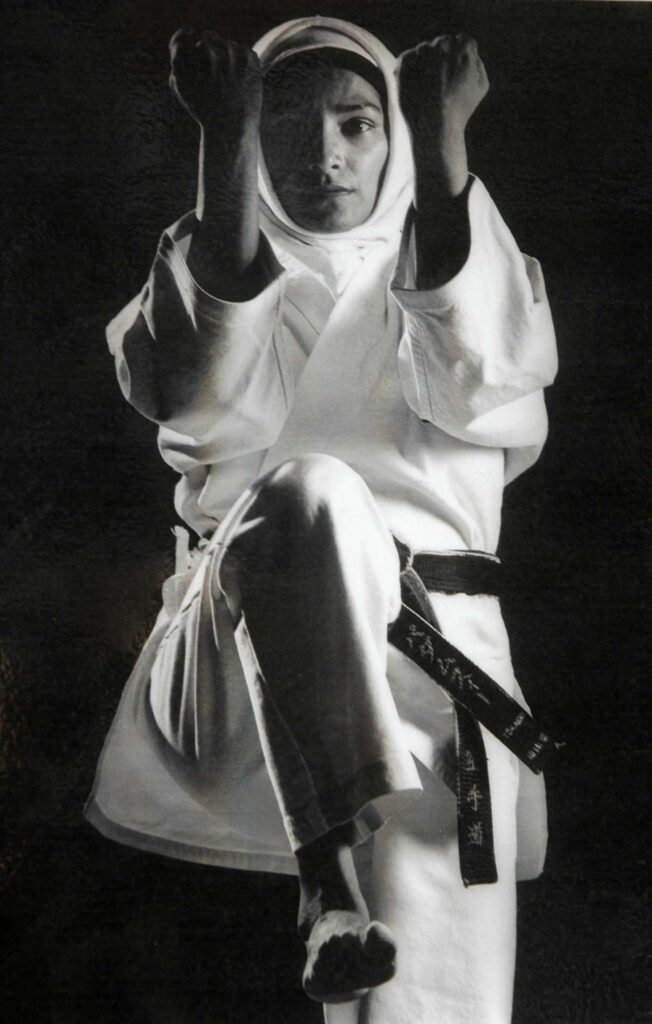
Rani’s interest in martial arts goes back to her early life although at the beginning she was strongly discouraged by her mother and was not allowed to learn the art. The primary reason for her mother’s disapproval was because at that time the perception was that only hoodlums and gangsters learnt karate and that no women were practicing the art in Bangladesh.
Tae Kwon Do
However, a few years after getting married and giving birth to her first child, son Saud, an opportunity opened for her to learn what she always wanted. On the one hand, she managed to persuade her husband to support her passion to learn martial arts. According to Rani, he probably agreed because he thought that her interest would be a short-lived affair. On the other hand, she found a teacher who could provide instruction.
It was when she attended a party, she spotted a foreign gentleman, Erman Harris, who worked in the American Embassy as the defense attaché. As she saw him alone and not engaged in conversation with anyone, she walked straight up to him and asked whether he practiced martial arts, and, to her surprise, the answer was yes. It was in 1981 that she started to train under Mr Harris, the first step towards realizing her dream of learning martial arts. When she started to learn karate, she realised that she was the first women in Bangladesh to undertake the learning of martial arts.
Erman Harris practiced Tae Kwon Do and therefore Rani’s first introduction to martial arts was to this school. Rani’s brother in law also joined the same lessons. The training programme continued for about three and a half years and the routine sometimes consisted of even seven days a week for 2-3 hours rigorous training per session. However, when Mr Harris left the country her training was discontinued.
Shotokan
After the teacher’s departure, she had to stop practicing martial arts for a while. However, within a short period, she was back learning the art again training in Wado, Kyokushinkai, Goju, Shito and Shotokan. Martial arts styles have their origins in different countries, such as Tae Kwon Do in Korea and Shotokan in Japan. Of all the different styles options she decided to specialize in Shotokan. According to Rani, Shotokan is the most popular form of martial arts, originating from Gichin Funakoshi, known as the father of the arts of empty-handed fighting. Rani points out that you can be the jack of all trades and master of none, but she wanted to be a master of one and decided to work on Shotokan alone, especially as self-training in this art was a possibility.
Black belt and career
Even before obtaining a black belt in 1988 Ran had started to teach karate at the American International School of Dhaka. During her career Rani has participated in various national, Asian and world competitions, becoming four times national champion in Kata and Kumite.
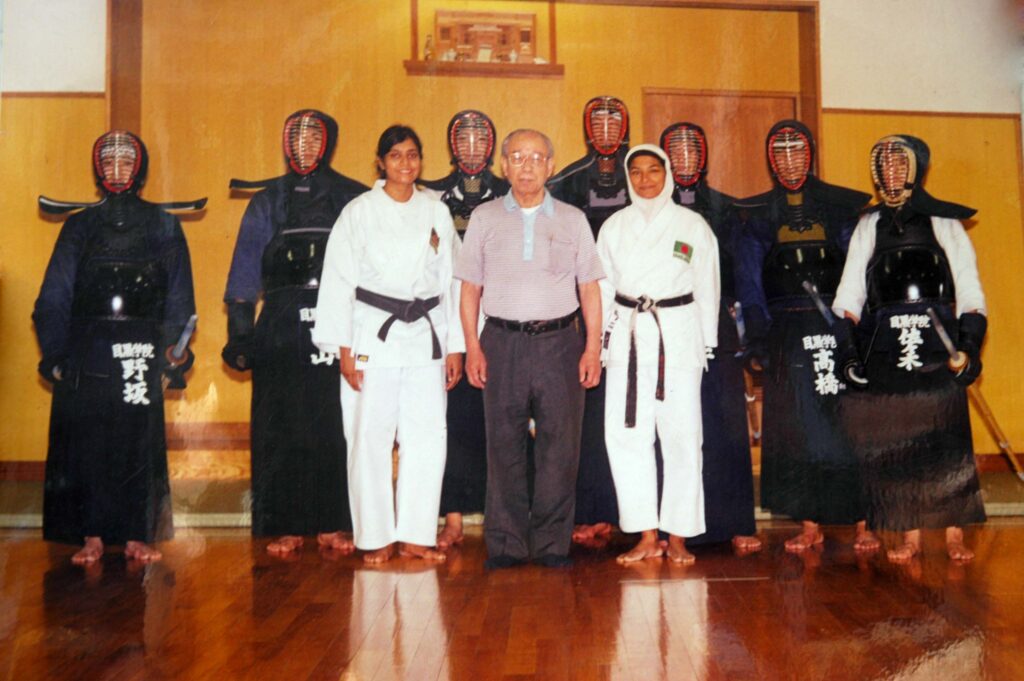
Since 1990, Rani has participated in competitions in the Philippines, Australia and Japan. She visited Japan 7/8 times, both for grading and training. One of her student, Alia Islam, a 3rd-degree black built and seven times national champion, has participated in several championships abroad – Japan in 1999, won two gold medals (Kata and Kumite) in the USA and one silver medal in the Thai Open Championship. Both her son and daughter have acquired expertise in the art of karate.
When Rani went for grading in 1988 the grandmaster was surprised to learn that much of what she learnt was self-taught. She had to study and practice alone as at that time there were no schools in Dhaka teaching Shotokan. When she was successful in obtaining her black belt, the teacher informed her that now it was her duty to promote the art of Shotokan through teaching.

After achieving the black belt Rani had their family garage in Gulshan 1 converted and started to offer classes. The current location in Gulshan 2 was opened in 1991. On average the children classes (Mon-Wed. 3.30-5 pm, Sat. 2.30-4 pm) attract 15-20 individuals during each session and in the adult classes (Sun, Tue, and Thu at 6-8 pm) the number varies more widely.
According to Rani, although karate is a very popular art among young girls, adult women in Dhaka do not see the value of joining and learning karate. Bengal School of Shotokan also runs the after-school karate classes at the International School Dhaka (ISD) in Bashundhara.
According to Rani, people’s social backgrounds should not determine their participation in and learning of martial arts. At the Bengal School of Shotokan, among the learners, different social backgrounds are represented. The students who can afford the fee payment pay, but those who cannot pay, get it free. According to Rani, most of the champions in Bangladesh have been her students one way or another.
About the question of why so many young girls take an active interest in learning martial arts, Rani points out that this was because the security needs were growing all over the world, not just in Bangladesh. Learning martial arts gives girls self-confidence and a better discipline in life, as well as improved health and the feeling of wellbeing. Girls in Dhaka want to go forward and martial arts are an exciting channel for that purpose.
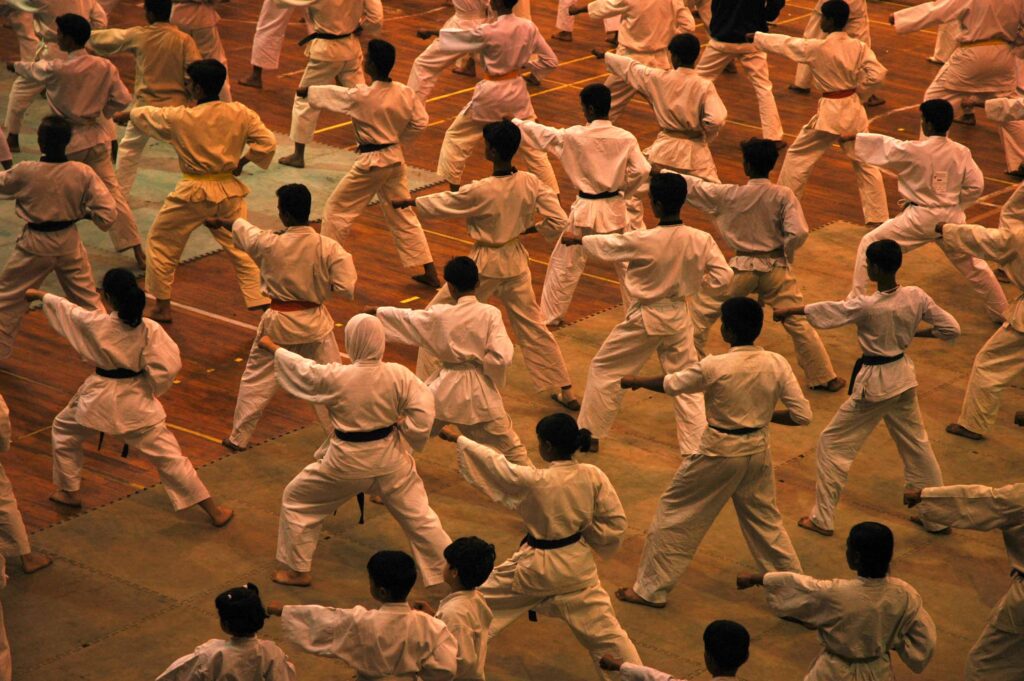
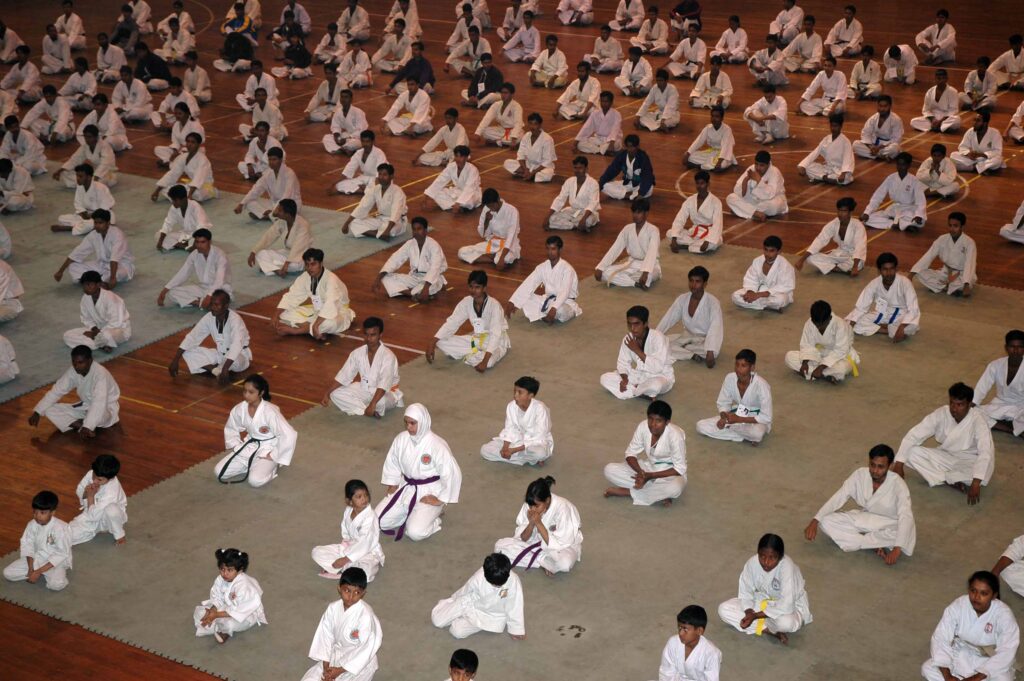
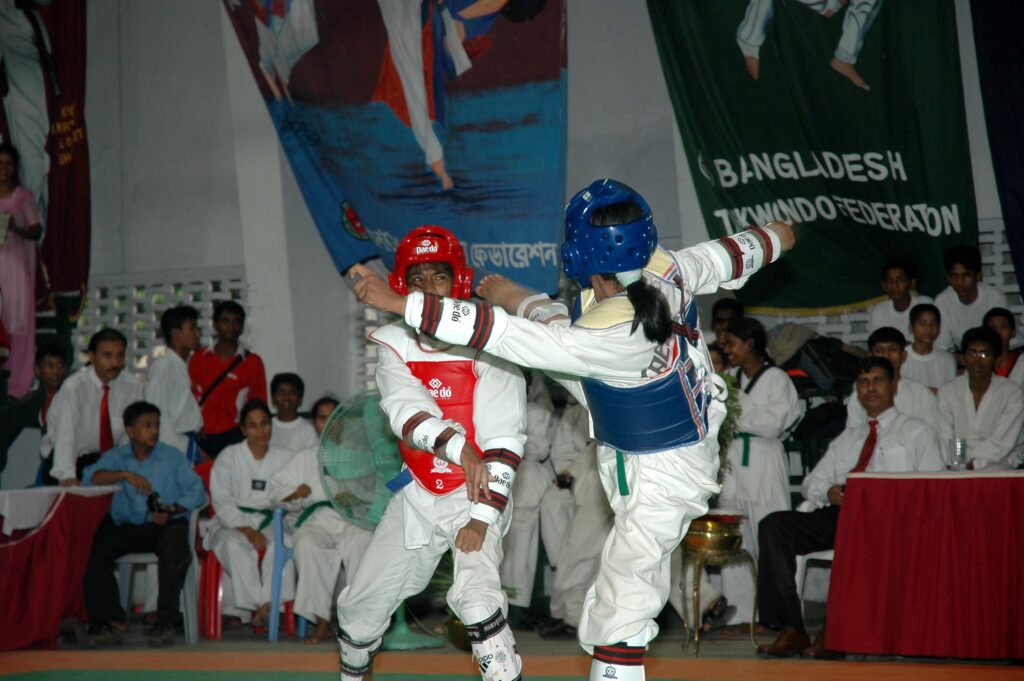
3rd National School Tae Kwon Do competition, July 04 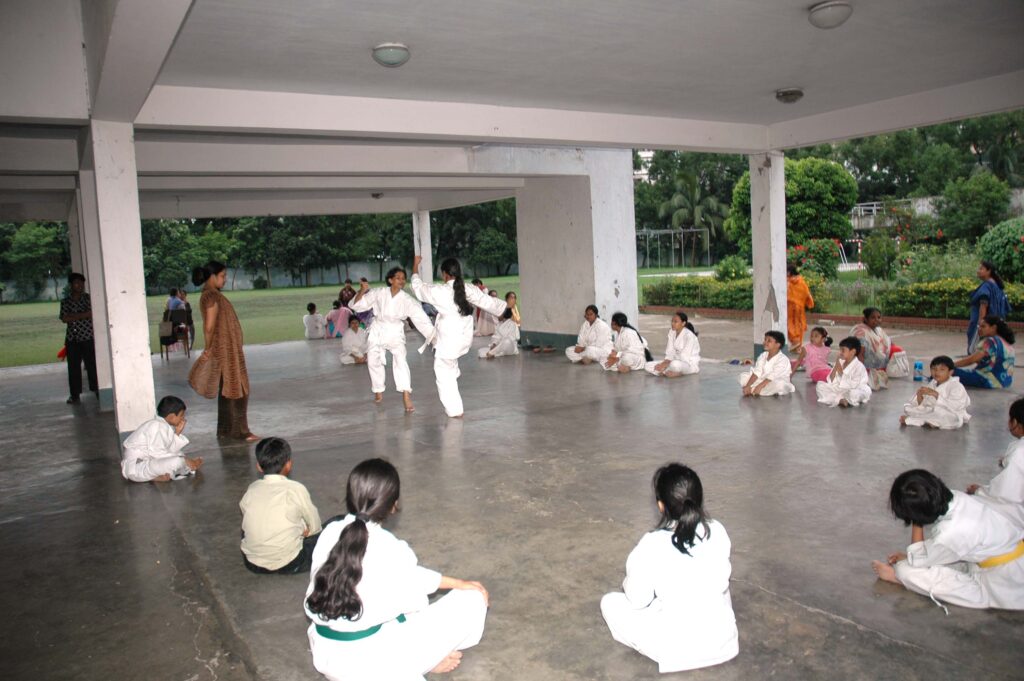
Karate practice at Women’s Sports Federation, Dhanmondi
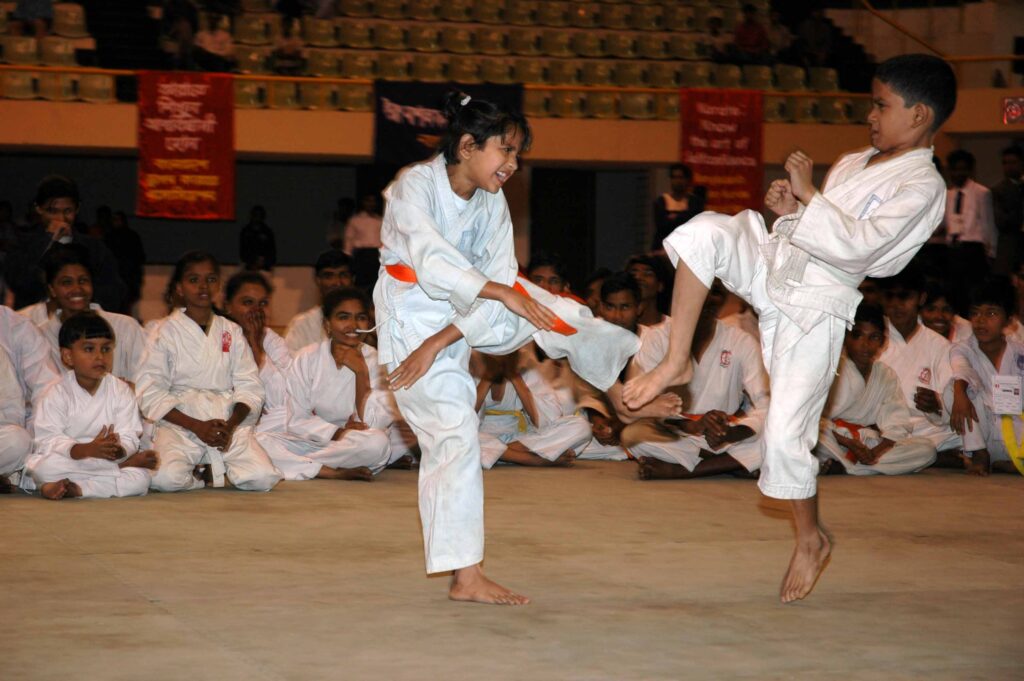
Family
Rani’s family now consists of herself, son Saud (22) and daughter Aisha (19). She lives on her own in DSS area of Dhaka, as both her children are abroad studying. She likes the area where she lives very much and feels that, unlike many other parts of Dhaka where neighbourliness is in decline with the growth of individualism and modernity, in her neighbourhood people still know one another and look out for each other’s needs. This makes her feel very safe and comfortable.
Saud, who is currently studying Business Administration in America, wanted to specialize in law as he thought that it would be a very lucrative profession. However, Rani opposed this and did not allow him to study law. Saud wanted to undertake studies on criminal law, but she did not want her son to lie as a lawyer through his life. Even though her son pointed out that he could make a lot of money as a lawyer she told him that money was not everything in life. Rani’s decision to discourage her son from taking up law was also based on the view that it would also involve denying the law of Allah and accepting the law of human. She feels that life was too short and as such she does not want her children to do anything wrong but wants to guide them to be good Muslims.
Rani’s daughter Aisha was undertaking science O level subjects to become a doctor, but she suddenly changed her mind and decided to study Islamiat, a one year’s course at the Alhoda University in Pakistan. When she finishes this course, she hopes to go to Malaysia and specialize in a subject of her choice.
Dhaka is home
Although born in Pakistan, Rani has lived in Dhaka since 1974, and the city has been her home ever since. She feels this is her home and feels very comfortable living in Dhaka.
However, there are several things that she dislikes about life in Dhaka. First, she feels that there are too many people who are still uneducated, and the uneducated classes usually suffer more. Second, the distinction between the poor and the rich was quite vast and that it was a growing phenomenon. Third, the number of middle classes was getting fewer and fewer and this group seems to be dying out. According to Rani, this was not a good sign of a healthy society. Examples of other unhealthy practices pointed out was that in some houses six or seven cars were kept, even if they are not all utilized. They become a symbol of wealth.
On the other hand, Rani is attracted to Dhaka because of the Neighbourliness and friendliness of the people, and that there was always assistance available should you need any. As both her parents and husband have died, and the children were studying abroad she finds herself living alone and does not consider this to be a problem. Once an army car stopped in the middle of the road seeing Rani trying to change a punctured tyre and helped her. Although she has been to many countries, including visiting all the states in America, she feels very comfortable living in Bangladesh. Rani has never felt insecure in Bangladesh but often felt insecure abroad. “I feel very positive about Bangladesh. I love my country and people.”
Future of Dhaka
Concerning the future of Dhaka, Rani feels that as more and more Bangladeshi young people are becoming educated, both within the country and abroad, the future is likely to be much better. She will also pray for a better Dhaka.
Rani feels that it is a matter of education and instilling pride in young people to love their country. Unlike in the past, the new generation of better educated Bangladeshi children, wherever they live in the world, will fight their way. However, Rani laments that many parents abroad were not doing their duty to make their children feel proud of Bangladesh. When she visited America, she found that many Bangladeshi children could not speak Bangla, which was in direct contrast to Chinese and Italian children, for example, who can all speak their languages. But she as high regards for Sylhetis as they can all speak Sylheti and are very proud of their language wherever they live.
Several years ago, Rani recalls, when she was returning from London, she met a young woman at the airport. During a conversation, she told Rani that she was going back home to Sylhet and she could only speak Sylheti and was very proud of it. Rani appreciates people when they love their origin and are proud of their heritage. “Wherever they are in the world Sylhetis don’t care, they just speak their language.”
Many Bangladeshi children she met in America who are not Sylhetis cannot usually speak Bangla. Concerning her children, even though her husband’s family is from Bombay (Mumbai), speaking Urdu and Gujrati, she made sure that her children learnt Bangla first. As a result, her family in Bombay had learnt some Bangla to communicate with the children. Rani says that everybody should be very proud of their roots and that she is very proud to be a Bengali.
To bring a positive change in Bangladesh it is necessary to make the young generation feel prouder of their heritage and help change the negative image of Bangladesh abroad. As an example of the effects of the negative image that Bangladesh suffers from, Rani recalls an event during her participation in the 1991 world tournament in Japan. That time as Bangladesh suffered a devastating cyclone and a press release was organised in Japan for her to provide more information about the situation. At the press conference one person asked her a stupid question – “do you have electricity in Bangladesh?” Similar stupid questions were asked in one state during her tour of the USA.
Fashion designing
Besides the martial arts scene, Rani is also engaged in fashion designing. She designs according to Islamic dress code to enable Muslim women to dress elegantly, and her collections have appeared in fashion shows, including at Sheraton Hotel. Currently, she is working with her friend who runs the Roksana fashion house in Banani. Rani designs dresses, jewellery and bags, chooses the colour and fabrics and Roksana makes and sells them.
Although Rani now observes the Muslim dress code and wears the hijab, she did not take up the full observance before 1994. She explained that one time she asked her husband for permission to wear the hijab but was discouraged saying that she was still too young. Rani feels that she should have started to wear hijab even before when she started as it was her Islamic duty as a Muslim woman.
Soon after she took up the hijab, she faced her first test of will in this regard when she went to Manila in 1995 to participate in the Asian Championship. At first, she was not allowed to participate in any of the competition wearing the hijab. But later when she threatened to call a press conference to complain of discrimination against the Muslims she was invited to explain how, from a technical point of view, the hijab was not going to affect the art. When she provided an explanation all objections to her participation was removed. Rani feels that Japanese people are wonderful and when they understood the explanation, they did not have any further problems with her participation. The initial refusal was because there was nothing in their rule book on this matter.
